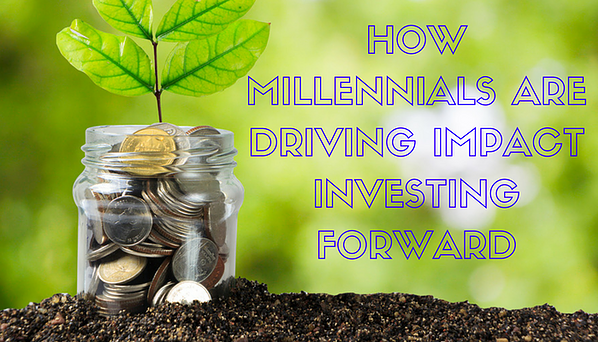
While student loan debt is among one of the largest factors holding down the Millennial generation financially, in the not so distant future this is about to change. Analysts from J.P. Morgan and the Rockefeller Foundation’s Global Impact Investing Network (GIIN) expect the sustainable and impact investing market to swell by $500 billion by the end of 2020. One of the reasons behind this is a massive impending transfer of wealth from one generation to another. Within the next few decades, Millennials and Generation Xers are set to inherit between $30-40 trillion dollars from the Baby Boomer generation. Quite possibly one of the largest generational transfers of wealth in all of history.
What are Millennials to do with all that money?
According to a study from Schroders in 2016, Millennials (adults ages 18-35) are much more likely to place importance on environmental factors and be concerned with social governance issues than investors older than 36. The survey also found that Millennials viewed ESG factors as equally important to factors like risk and return when considering investments. Odds are that ESG investing won’t be a light, fluffy topic to bring up with hippie investors: when Millennials come into money it will be considered mainstream investing.
The Importance of Social Brands
Additionally, Millennials are far more likely than other generations to engage with brands that have strong sustainable and ethical ties. Take a company like TOMS shoes for instance: through the sales of their shoes, TOMS provides additional shoes, water, safe birth, glasses and bullying prevention services to people in need around the world through over 100 charitable organizations. While some may be actively rolling their eyes, these are the kinds of factors that will entice Millennials to invest in a company, not blind promises of whopping returns.
The Importance of Social Media
It can’t be understated how important social media’s role is in this space. Young adults use it a platform to voice opinions on investments and praise companies that are doing great things and share their values. It’s their metaphorical soapbox and it is a great way to educate the broader public on companies that they otherwise may never have heard of. Plus, in local communities, they can bring to light some of the great local projects and events that require investments from the private sector.













Leave A Comment